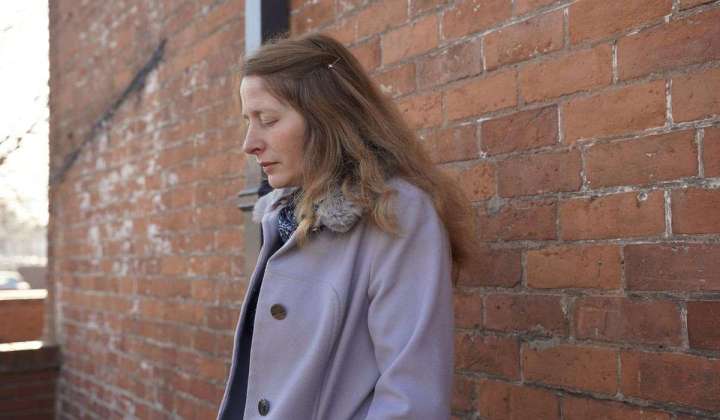U.K. prosecutors ‘discontinue’ charges against woman in silent prayer near abortion clinic

A British woman arrested in Birmingham, England, for standing silently near an abortion clinic that was closed at the time will pursue vindication in court even after the case had been “discontinued” by local prosecutors, though the charges could be revived.
“It’s vital that I have clarity as to my legal status,” said Isabel Vaughan-Spruce, 45, who was taken into custody last Dec. 6 after telling police officers that she “might” have prayed in her mind while standing silently near a clinic.
She was searched, her pockets emptied, and driven to a police station, actions shown in a viral video that’s had close to 48,000 views since it was posted on YouTube in late December.
“Many of us need an answer as to whether it’s still lawful to pray silently in our own heads. That’s why I’ll be pursuing a verdict regarding my charges in court,” she said.
Ms. Vaughan-Spruce was arrested outside a British Pregnancy Advisory Service clinic in the Kings Norton neighborhood of Birmingham. The clinic, which is open only on “alternate Tuesdays,” as its website indicates, was closed at the time.
Police criminally charged her with “protesting and engaging in an act that is intimidating to service users,” despite the fact there were no clients or workers present.
Ms. Vaughan-Spruce told police she was not protesting, although local authorities designated the area near the clinic as a “censorship zone” in which protests and even prayer are banned.
Britain’s Crown Prosecution Service, which brings criminal cases to trial, said the charges were discontinued, but “may well start again” if a review of the evidence warrants action.
A statement from Alliance Defending Freedom U.K., whose attorneys represent Ms. Vaughan-Spruce, said such a warning is given “when [prosecutors] expect that further evidence will be received.”
Ms. Vaughan-Spruce said, “It can’t be right that I was arrested and made a criminal, only for praying in my head on a public street. So-called ‘buffer zone legislation’ will result in so many more people like me, doing good and legal activities like offering charitable support to women in crisis pregnancies, or simply praying in their heads, being treated like criminals and even facing court.”
Jeremiah Igunnubole, an ADF UK legal counsel, said Ms. Vaughan-Spruce “is right to request proper clarity as to the lawfulness of our actions. It’s one thing for the authorities to humiliatingly search and arrest an individual simply for their thoughts.”
He said, “It’s quite another [matter] to initially deem those thoughts to be sufficient evidence to justify charges, then discontinue those charges due to ‘insufficient evidence’, and then to warn that further evidence relating to the already unclear charges may soon be forthcoming so as to restart the entire grueling process from the beginning.”
After the arrest, Sir Jeffrey Mark Donaldson, leader of the Democratic Unionist Party in Britain’s Parliament, challenged Prime Minister Rishi Sunak Jan. 25 over the police action.
“I trust our prime minister would agree that no one should be arrested because of their thoughts or prayers, and our constabularies across the U.K. should be allowed to focus on tackling real crime instead of being required to police our thoughts,” the News Letter, a Belfast newspaper, quoted him as saying.
Mr. Sunak told the legislator, “of course we believe in freedom of religion, belief and expression,” but that the government wants to balance that “with the rights of women to seek safe and legal abortions.” He said the current Parliament, which legislated such “censorship zones” in 2022, is “currently” discussing the issue.






